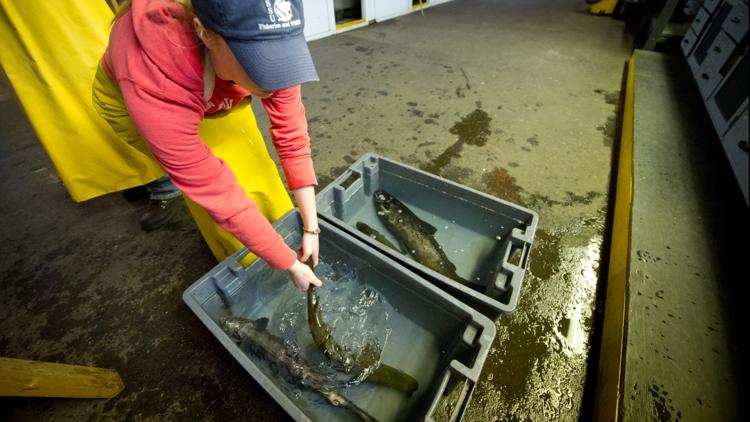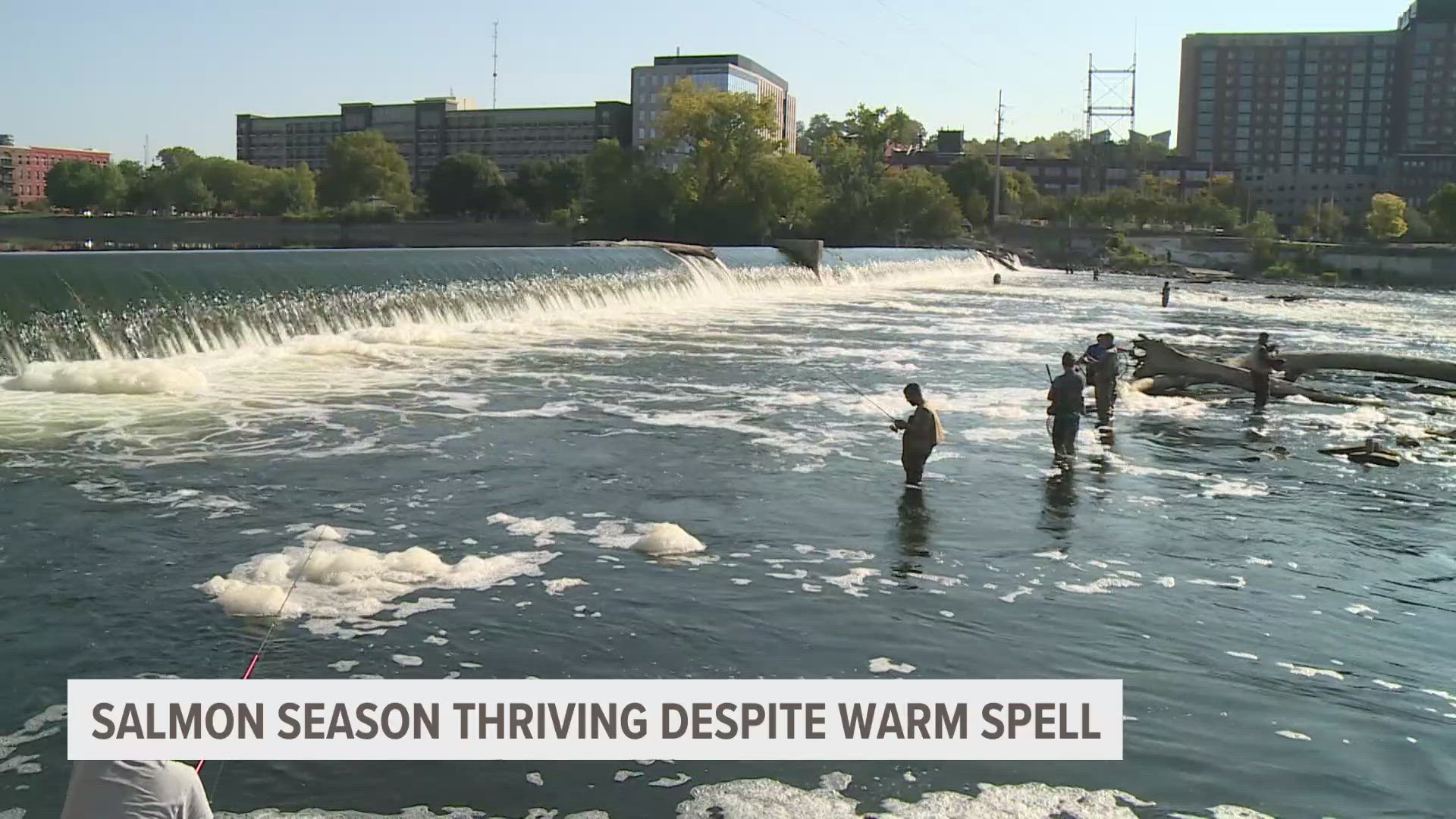WEXFORD COUNTY, Mich. — The Michigan Department of Natural Resources shared Tuesday that fisheries staff euthanized just over 31,000 Atlantic salmon sick with bacterial kidney disease, or BKD.
While staff at the Harrietta State Fish Hatchery in Wexford County were doing a prestocking inspection, they found kidney disease.
Staff at the Michigan State University Aquatic Animal Health Lab noted signs of active disease and confirmed the presence of Renibacterium salmoninarum, the bacterium that causes BKD.
The DNR said BKD can kill off trout and salmon and is believed to be largely responsible for the decline in the Great Lakes Chinook salmon populations in the mid-1980s.
Staff did a 28-day antibiotic treatment in May, but they said it wasn't fully effective. Another round of testing found that active disease was still there.
Ed Eisch, DNR Fisheries Division Assistant Chief Ed Eisch, said the bacteria that causes kidney disease is a Level 1 restricted pathogen in the Model Program for Fish Health Management in the Great Lakes.
Fish that are positive for Level 1 pathogens can be stocked, but only if the population is free of signs of disease. That wasn't the case with this lot of fish.
“Having to make the decision to dispose of these diseased fish hurt, but it was clearly the right thing to do,” said Eisch. “The Atlantic salmon fishery is highly valued, but first and foremost, we have a public trust responsibility to protect the aquatic resources of the state of Michigan. Stocking fish known to be actively suffering a disease outbreak would be counter to that.”
DNR Fish Production Program manager Aaron Switzer isn’t overly surprised that this treatment was not fully successful.
“These fish were sick enough that a significant portion of the fish were not feeding well,” he said. “That means that the antibiotic, which was mixed in with their feed, was not being eaten at the rate necessary to eliminate the pathogen.”
While this isn't the outcome the DNR hoped for, the state stocks 20 million to 30 million fish annually in Michigan’s public waters.
That means there are still many quality fishing opportunities statewide, the DNR said.
Harrietta is not the only hatchery rearing Atlantic salmon in Michigan.
The Platte River State Fish Hatcher, that's located about 15 miles west of Traverse City, also reared Atlantic Salmon.
Those fish were stocked in four locations:
- Torch Lake received 15,883 fish.
- The Au Sable River in Oscoda and the Thunder Bay River in Alpena each received 25,000 fish.
- Lake Huron’s Lexington Harbor received 40,000 fish.
The St. Marys River at Sault Ste. Marie will be stocked this week with just under 27,000 fish, the DNR said.
According to the DNR, Michigan's hatchery system is undergoing infrastructure updates to "address a large backlog of deferred maintenance needs that have accumulated over the years due to inadequate major maintenance funding."
Some of those upgrades include biosecurity improvements which will reduce the likelihood of these types of illness in the future.
For more on fish and aquatic diseases, visit Michigan.gov/FishHealth. Learn more about the DNR’s fish production program and hatcheries and weirs at Michigan.gov/Hatcheries.
►Make it easy to keep up to date with more stories like this. Download the 13 ON YOUR SIDE app now.
Have a news tip? Email news@13onyourside.com, visit our Facebook page or Twitter. Subscribe to our YouTube channel.
Watch 13 ON YOUR SIDE for free on Roku, Amazon Fire TV Stick, Apple TV and on your phone.



